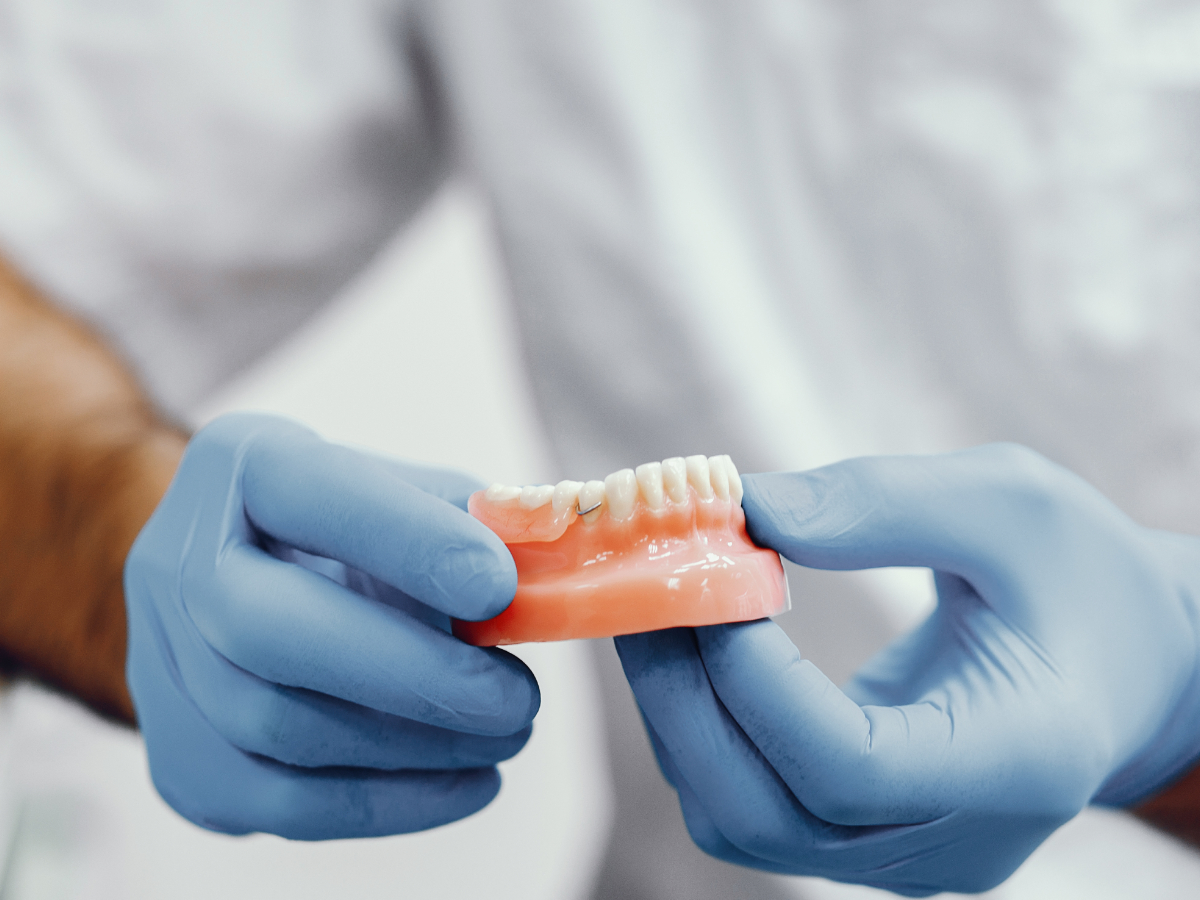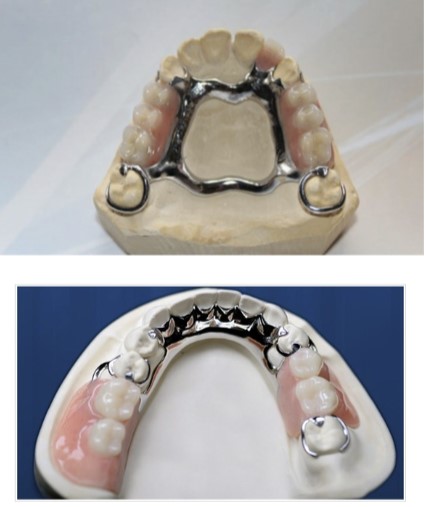Dentures (False Teeth)
Dentures are removable false teeth made of acrylic (plastic) or metal. They fit over the gums to replace missing teeth and eliminate potential problems caused by gaps. A space is created when you lose a tooth through decay or trauma. Gaps or spaces left by missing teeth can cause problems with eating and speech, and teeth on either side of the gap may grow into the space at an angle. Dentures help prevent problems with eating and speech and improve the appearance of your smile.
Dentures can either be:
Complete Dentures (a full set) – which replace all your upper or lower teeth
or
Partial Dentures – which replace just 1 or a few missing teeth


Dentures can either be:
Complete Dentures (a full set) – which replace all your upper or lower teeth
or
Partial Dentures – which replace just 1 or a few missing teeth

Traditional (Acrylic) Dentures:
Traditional dentures are made from a toughened plastic called MMA. This resilient material is held in place by closely adhering to the gum over the underlying jaw bone. The acrylic teeth are placed in situ by close cooperation between your dentist and our laboratory technician.
Metal (Cobalt Chrome) Dentures:
Metal dentures are usually made from chrome cobalt and are thinner and less bulky than acrylic dentures. These dentures fit more closely to the supporting teeth and thus offer a more natural feeling in the mouth due to their snugger and more secure fit. The key disadvantages of cobalt chrome dentures are that they are more expensive than acrylic dentures and due to the tougher and less flexible nature of the metal used in their production they are also more challenging to repair or change. Your dentist will help you choose the type of denture that’s best suited to your needs based on your specific requirements and the cost involved.


Metal (Cobalt Chrome) Dentures:
Metal dentures are usually made from chrome cobalt and are thinner and less bulky than acrylic dentures. These dentures fit more closely to the supporting teeth and thus offer a more natural feeling in the mouth due to their snugger and more secure fit. The key disadvantages of cobalt chrome dentures are that they are more expensive than acrylic dentures and due to the tougher and less flexible nature of the metal used in their production they are also more challenging to repair or change. Your dentist will help you choose the type of denture that’s best suited to your needs based on your specific requirements and the cost involved.